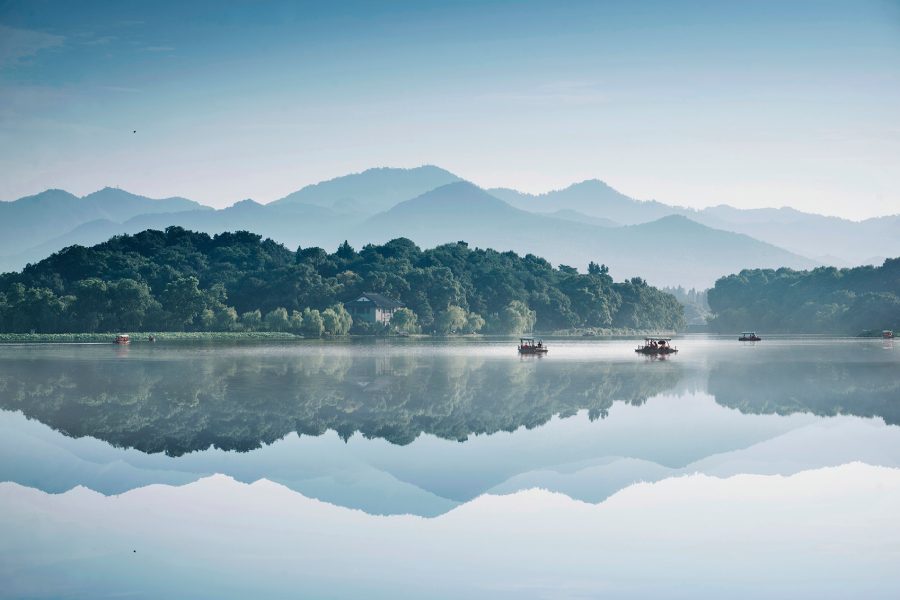Over the centuries, Hangzhou – and its famed West Lake, in particular – has captivated and inspired many of China’s greatest poets.
The city was an especially popular subject for writers during the Tang (618-907) and Song (960-1279) Dynasties, two periods of relative prosperity and artistic flourishing which together constitute “China's Golden Age”.
So, what is it about Hangzhou? The still, tranquil waters of West Lake? The lush green hills that surround it? The city’s elegant streets and tree-lined canals? Or its dainty bridges and immaculate gardens? Discover what makes Hangzhou so special through the poems that have immortalised it.
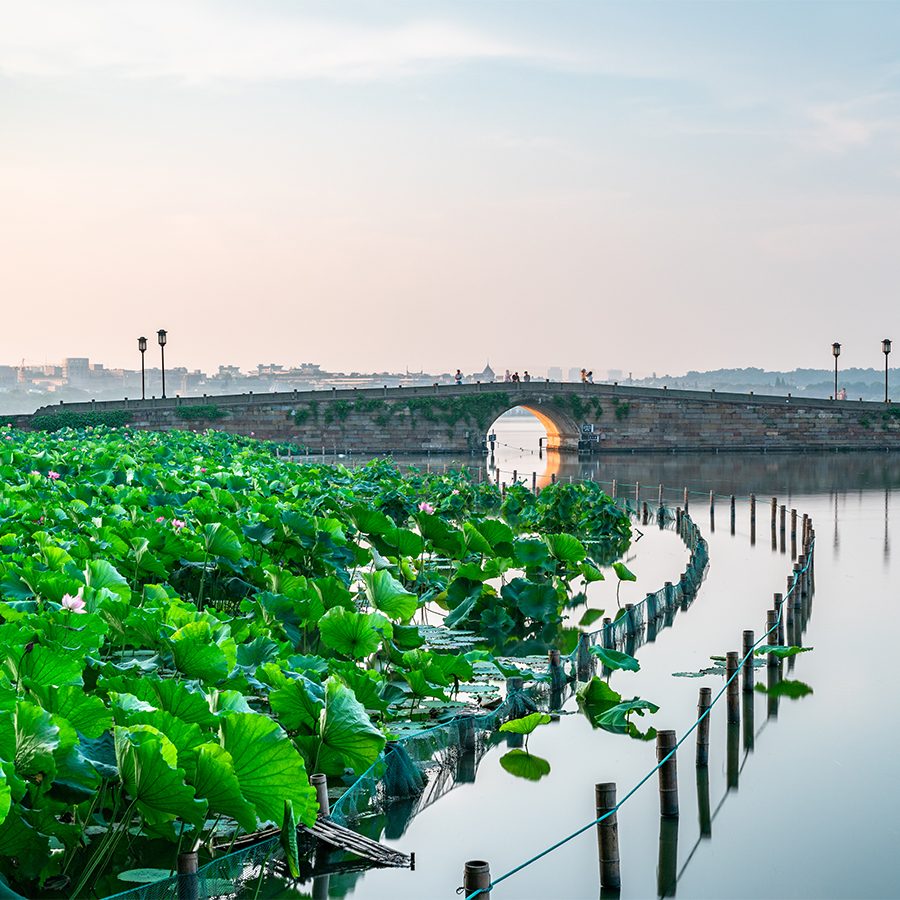
Credit: Ian CuiYi/Getty Images
500px-Gettyimages-2.renditionimage.900.900.jpg)
Credit: Xiaoyue Zhao/Getty Images
The lure of the lake: Bai Juyi
From Lake Geneva to the Lake District, lakes – whether for their beauty or their solitude – have always been a magnet for writers. Hangzhou’s West Lake has inspired hundreds of renowned and popular poems, a good deal of which are by Tang Dynasty poet Bai Juyi.
Sent to Hangzhou to serve as its governor, Bai Juyi fell in love with the city and its mystic waters. In his poem Spring Theme: Above the Lake, he paints a vivid picture of the lake and its surrounding scenery in the vitality and full bloom of spring:
Unruly peaks all round the edge, the water spread out flat
Pines in ranks on the face of the hills, a thousand layers of green
To experience this verdant beauty for yourself, take a leisurely stroll along the banks of the lake, starting at the famed Broken Bridge and crossing Bai Causeway.
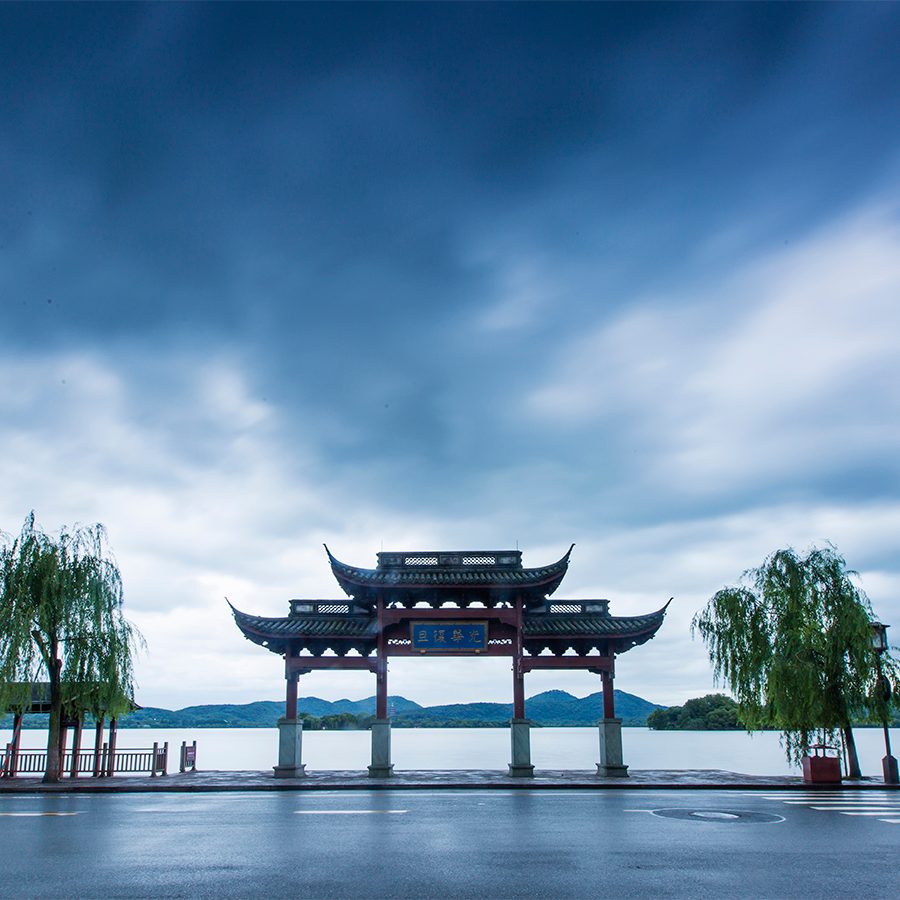
Credit: lingqi xie/Getty Images
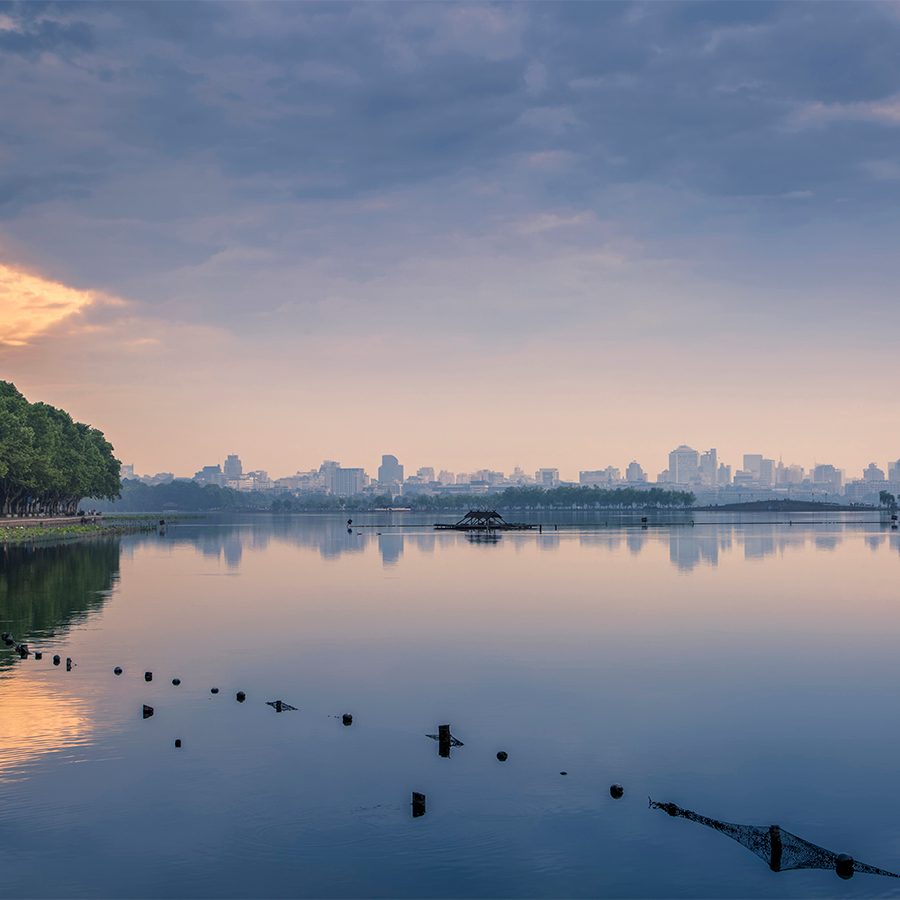
Credit: lingqi xie/Getty Images
Solo contemplation: Lin Bu
Planning a solo trip? Hangzhou might be your ideal destination. Take it from Lin Bu, a Song Dynasty poet who lived out his later life in solitude on Gushan, a small island within the West Lake.
Devoting himself to a hermetic lifestyle, Lin Bu was known for keeping only plum trees and cranes as companions. The former, which blossom at the end of winter and herald the arrival of spring, feature prominently in his work. In the poem Plum Blossom of Hill Garden, Lin Bu writes:
Their scattered shadows fall lightly on clear water
Their subtle scent pervades the moonlit dusk
Spend an hour or two exploring Gushan – accessible via the Bai Causeway – in late winter, and you’ll understand what it was about the plum tree’s delicate and fragrant pink flowers that Lin Bu found so delightful.
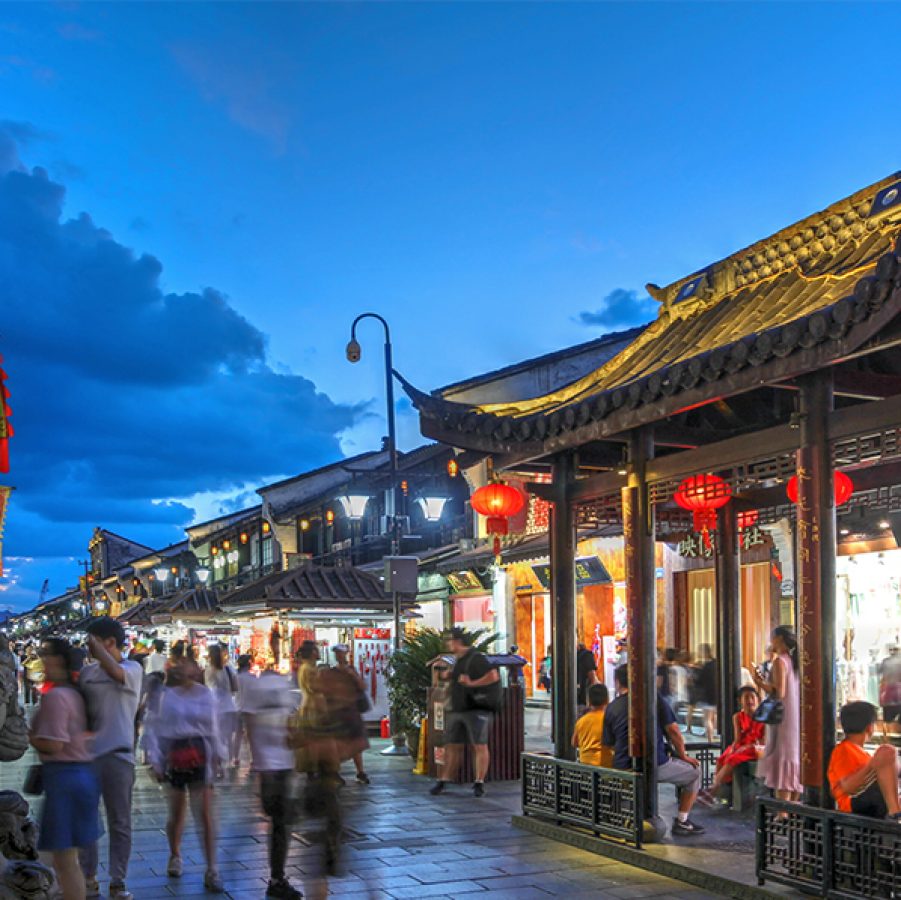
Credit: Bogdan Lazar/Getty Images
Urban vitality: Liu Yong
While much of the classic poetry written about Hangzhou is pastoral in theme, there are also odes to the city’s thriving urban centre. In his poem Watching the Tidal Bore, Song Dynasty poet Liu Yong intersperses depictions of nature’s might with vibrant scenes of daily life:
Great waves roll up like snowbanks white
The river extends till lost to sight
Jewels and pearls at the Fair on display
Satins and silks in splendid array
The first couplet refers back to the poem’s title, describing the huge waves that sometimes travel up Qiantang River at high speeds, against the flow of the current. You can join the crowds that still gather along the riverfront in Hangzhou to witness this tidal phenomenon – but be sure to do so from a safe distance. Take the time, too, to traverse the city’s old streets, where you’ll find plenty of traditional wares on display. You’ll get a sense of the richness and abundance that Liu Yong describes in the second two lines of the excerpt.
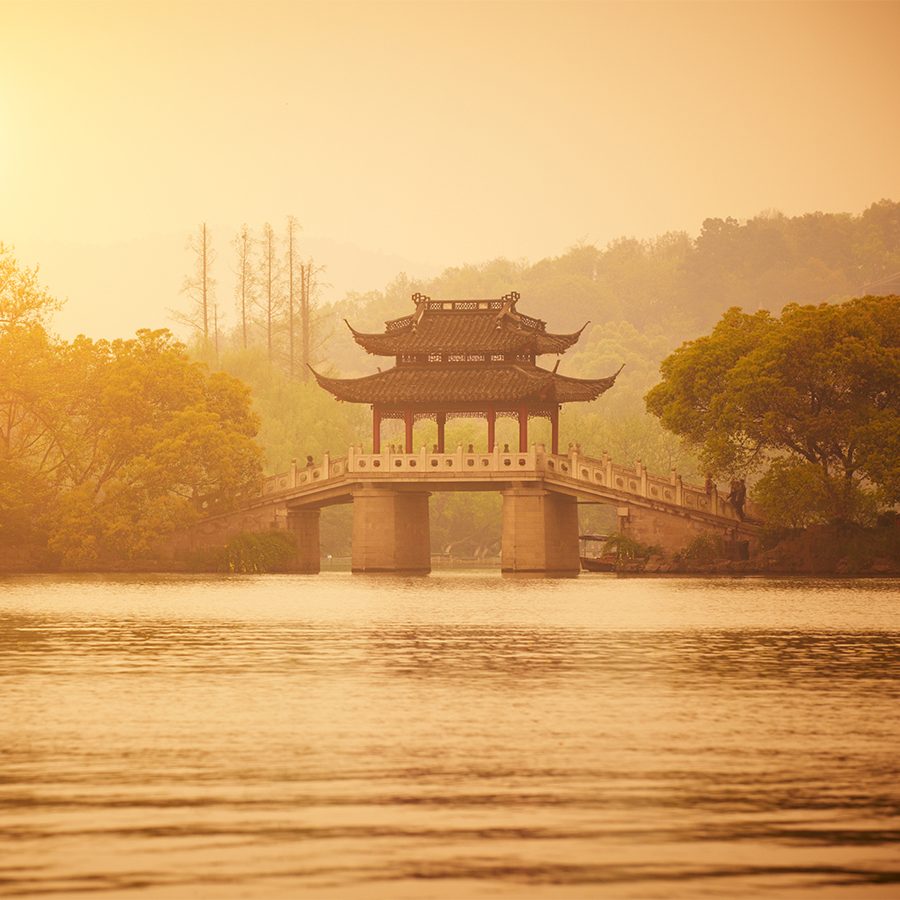
Credit: sandsun/Getty Images
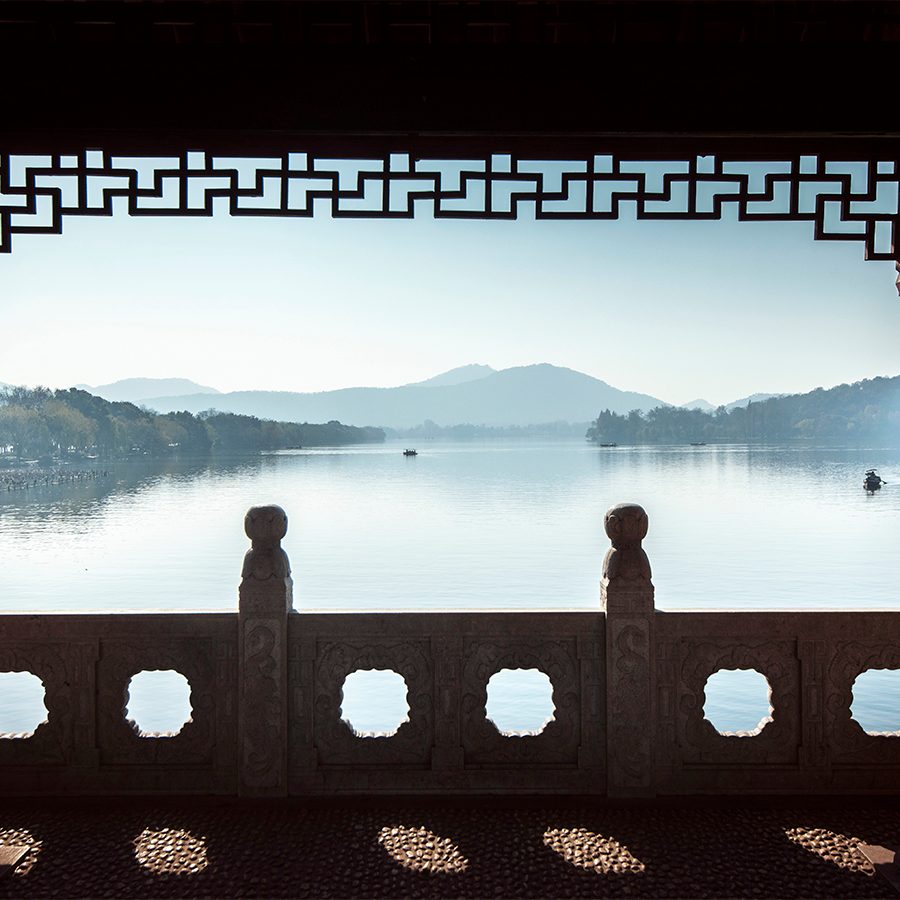
Credit: zhangshuang/Getty Images
Nature’s changing faces: Su Shi
Whatever the weather or season, Hangzhou’s natural scenery never fails to enchant. And perhaps no writer conveys this better than Su Shi (also known as Su Dongpo). Su Shi was a leading Song Dynasty figure who, like Bai Juyi, served as governor of Hangzhou. He similarly left his mark on the city in the form of Su Causeway, which connects the north and south-east sides of West Lake.
Again, like his predecessor, Su Shi became closely connected with Hangzhou’s West Lake through his writing. His sparely worded poems capture fleeting yet sublime moments in nature – take the poem Drinking by the Lake: Clear Sky at First, then Rain, in which he writes:
The shimmer of light on the water is the play of sunny skies
The blur of colour across the hills is richer still in rain
In these two contrasting lines, Su Shi underscores the transience of nature, with each change that occurs bringing out a different, yet equally beautiful, quality in the landscape. Visit West Lake during the rainy late summer months to see for yourself.
More inspiration
Hangzhou travel information
- China – the Chinese Mainland, Hong Kong SAR, Macao SAR and Taiwan Region
- Hong Kong SAR - English
- Chinese Mainland (China) - English
- Taiwan, China - English
- 香港特別行政區 - 繁體中文
- 中国內地 - 简体中文
- 中國台灣 - 繁體中文
- Africa
- South Africa - English
- Asia
- Bangladesh - English
- Korea - English
- Singapore - English
- Cambodia - English
- 한국 - 한국어
- Sri Lanka - English
- India - English
- Malaysia - English
- Thailand - English
- Indonesia - English
- Maldives - English
- ประเทศไทย - ภาษาไทย
- Indonesia - Bahasa Indonesia
- Myanmar - English
- Vietnam - English
- Japan - English
- Nepal - English
- Việt Nam - tiếng Việt
- 日本 - 日本語
- Philippines - English
- Australasia
- Australia - English
- New Zealand - English
